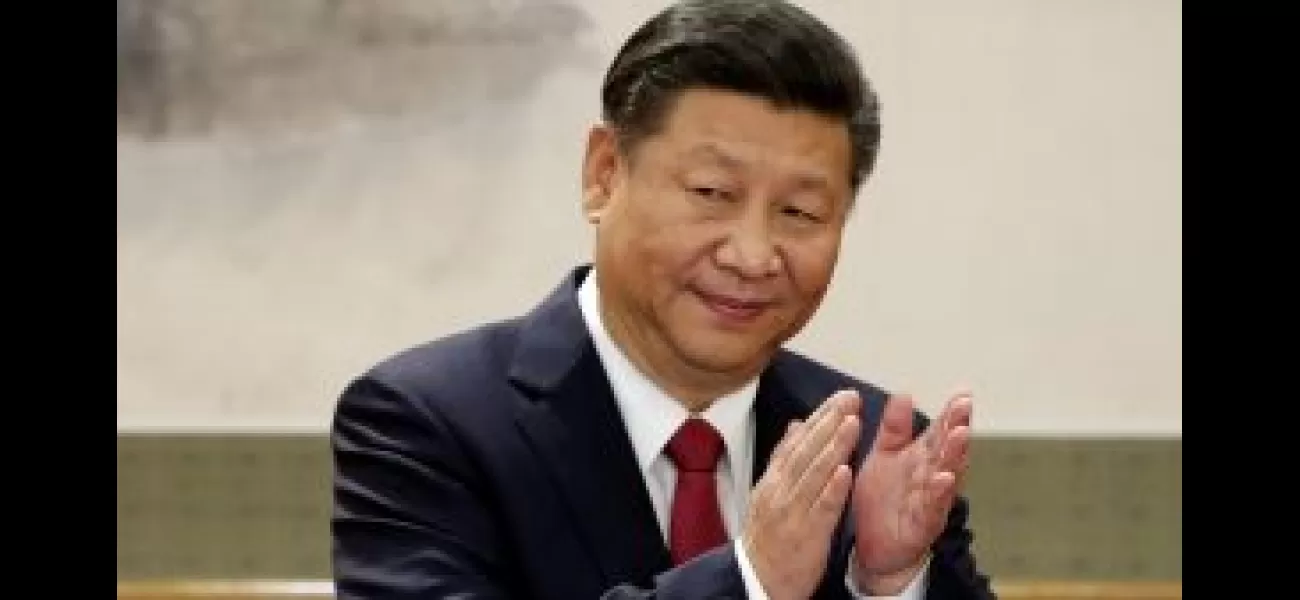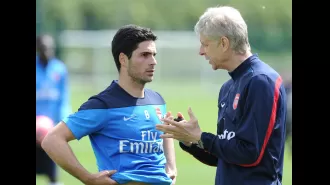Xi's visit to Europe is a significant event that aims to strengthen diplomatic ties and promote economic cooperation between China and European countries.
Xi Jinping's European tour is seen as a chance to assert China's goals; he emphasized building ties with Europe and showed support for his ally.
May 13th 2024.

Chinese President Xi Jinping recently embarked on a tour of Europe, marking his first visit in five years. Many see this as an opportunity for Beijing to reaffirm its economic and geopolitical ambitions. During his trip, Xi made it clear that China is eager to strengthen its relationship with Europe and also expressed solidarity with his ally, Russian President Vladimir Putin.
Xi's tour took him to France, Serbia, and Hungary, where he focused on showcasing the commercial and geopolitical objectives of Chinese power. He played his cards wisely and approached the trip from a position of advantage, without making any significant concessions to European leaders. His itinerary was carefully chosen, sending a strong message in itself. By visiting Serbia and Hungary, both known for their close ties with Russia, after his stop in Paris, Xi made it clear that he wanted to highlight Europe's divisions.
In Paris, President Emmanuel Macron had a strategic plan in place, including European Commission President Ursula von der Leyen in his discussions with Xi. Macron wanted to show that he had the support of other European nations. However, German Chancellor Olaf Scholz did not join the meeting, as his country's policy towards China is heavily influenced by the interests of German industrialists. This weakened Macron and von der Leyen's efforts to address the serious trade disputes between China and the EU, including the issue of Chinese electric car manufacturers flooding the European market at lower prices.
Xi also handled the issue of Russia's war with Ukraine carefully, as it was a top priority for Paris and Brussels. While he remained noncommittal during private discussions, in public he defended China's support for Russia, citing concerns about maintaining its image and avoiding a new Cold War. This aligns with China's pro-Russia stance and sets the stage for Putin's upcoming visit to Beijing.
In contrast to his visit to France, Xi's meetings with Serbia and Hungary were more cordial and fruitful in terms of economic cooperation. His visit to Belgrade coincided with the anniversary of the NATO bombing of the Chinese embassy during the Kosovo war in 1999, which Beijing has never accepted as a mistake. This is significant as it shows China's opposition to NATO's actions and supports its multi-polar world vision.
Xi also strengthened ties with Hungary, rewarding its "independent" foreign policy with 18 economic cooperation agreements and elevating its strategic partnership with China. It is worth noting that Xi chose to engage with autocratic leaders in Europe, further solidifying the China-Russia axis.
Many experts believed that Xi would use his trip to Europe to drive a wedge between the United States and its European allies and promote his vision of a multi-polar world with Chinese characteristics. However, it appears that they were wrong. Xi seems content with his alliance with Putin and is looking to expand it by building relationships with other autocratic leaders in Europe.
Xi's tour took him to France, Serbia, and Hungary, where he focused on showcasing the commercial and geopolitical objectives of Chinese power. He played his cards wisely and approached the trip from a position of advantage, without making any significant concessions to European leaders. His itinerary was carefully chosen, sending a strong message in itself. By visiting Serbia and Hungary, both known for their close ties with Russia, after his stop in Paris, Xi made it clear that he wanted to highlight Europe's divisions.
In Paris, President Emmanuel Macron had a strategic plan in place, including European Commission President Ursula von der Leyen in his discussions with Xi. Macron wanted to show that he had the support of other European nations. However, German Chancellor Olaf Scholz did not join the meeting, as his country's policy towards China is heavily influenced by the interests of German industrialists. This weakened Macron and von der Leyen's efforts to address the serious trade disputes between China and the EU, including the issue of Chinese electric car manufacturers flooding the European market at lower prices.
Xi also handled the issue of Russia's war with Ukraine carefully, as it was a top priority for Paris and Brussels. While he remained noncommittal during private discussions, in public he defended China's support for Russia, citing concerns about maintaining its image and avoiding a new Cold War. This aligns with China's pro-Russia stance and sets the stage for Putin's upcoming visit to Beijing.
In contrast to his visit to France, Xi's meetings with Serbia and Hungary were more cordial and fruitful in terms of economic cooperation. His visit to Belgrade coincided with the anniversary of the NATO bombing of the Chinese embassy during the Kosovo war in 1999, which Beijing has never accepted as a mistake. This is significant as it shows China's opposition to NATO's actions and supports its multi-polar world vision.
Xi also strengthened ties with Hungary, rewarding its "independent" foreign policy with 18 economic cooperation agreements and elevating its strategic partnership with China. It is worth noting that Xi chose to engage with autocratic leaders in Europe, further solidifying the China-Russia axis.
Many experts believed that Xi would use his trip to Europe to drive a wedge between the United States and its European allies and promote his vision of a multi-polar world with Chinese characteristics. However, it appears that they were wrong. Xi seems content with his alliance with Putin and is looking to expand it by building relationships with other autocratic leaders in Europe.
[This article has been trending online recently and has been generated with AI. Your feed is customized.]
[Generative AI is experimental.]
0
0
Submit Comment





